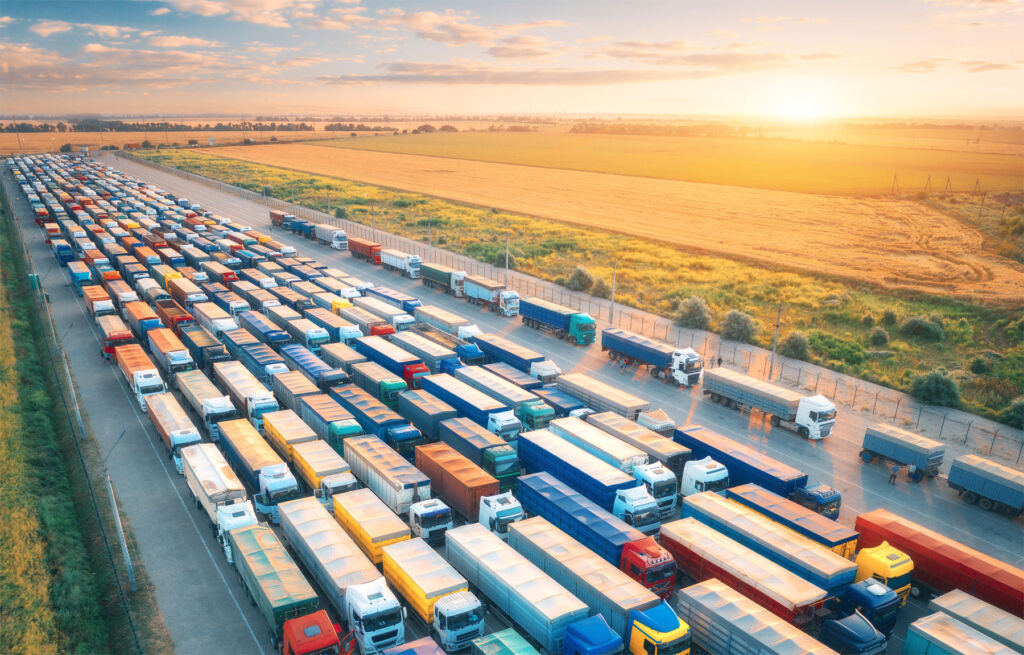
The H2Accelerate collaboration has published a whitepaper demonstrating high customer interest for hydrogen trucks as the only zero emissions solution in certain applications.
Today, the H2Accelerate collaboration has published a new whitepaper supporting the use of hydrogen in long-haul trucking, based on focus group discussions with truck end-users and logistics providers. The paper sets out the conclusions of a series of focus groups with companies such as Amazon, Nestle Waters, DB Schenker, and Kuehne-Nagel, who have the potential to drive the significant market demand for hydrogen trucks and the growth of the sector.
In the paper, the H2Accelerate collaboration sets out the needs and expectations of trucking end users and logistics providers as these organisations look to decarbonise their operations. They also outline how hydrogen can enable end users to achieve their decarbonisation targets while maintaining operations, especially amidst mounting regulatory pressure.
The whitepaper follows two others published last year, setting out the need for hydrogen trucking and expectations for the growth of the fuel cell truck market. The group also published a policy position paper stating the requirements from the Alternative Fuel Infrastructure Regulation in February 2022. Further whitepapers are expected this year to inform end users, policymakers, and regulators of the benefits of hydrogen trucking to enable the rollout of trucks and infrastructure.
Understanding customer requirements for fuel cell trucks
The H2Accelerate collaboration was formed by truck manufacturers Daimler Truck, IVECO, Volvo Group, and hydrogen infrastructure providers Linde, OMV, Shell, and TotalEnergies. The central objective of the collaboration is to enable a commercially viable, pan-European hydrogen trucking system in the post-2030 period.
As fleet operators and drivers are a crucial component of a successful rollout of hydrogen trucking, their needs and expectations should be well-understood and met as the system is deployed. It will be achieved through consistent communication between hardware suppliers (such as those within the H2Accelerate collaboration) and end-user groups.
“The findings of this study confirm what we have been hearing from industry partners and customers for the past year or so: the heavy-duty transportation sector is on board with using hydrogen to replace fossil fuels effectively,” said David Burns, VP of Clean Energy Development at Linde, an H2Accelerate member.
“We know the technology is there – we have delivered over 200 fuelling stations worldwide and successfully fuelled more than 1.5 million vehicles. Together with the H2Accelerate members, we are now working on scaling up the technology and building a robust infrastructure to enable the heavy-duty transport sector to operate with zero emissions, reliably, and at a competitive cost.”
The whitepaper found that the organisations, which have public-facing decarbonisation targets, understand that hydrogen freight will be a required complement to battery vehicles in order to achieve full decarbonisation of their operations. This is particularly true not only for long-haul applications, where the advantage of fast refuelling over battery electric alternatives was stressed but also for transport in grid constrained areas or in applications where vehicles are double shifted.
Regarding the cost and operation of the vehicles, end users were willing to accept that in the early stages of rollout, vehicles are likely to be more expensive and infrastructure more limited than the incumbent diesel trucking system. Several end users stated that while they would be happy to pay more in the short term to trial a small number of fuel cell trucks, their business model requires that in the long term, scale improvements and supportive policy allow hydrogen trucks to achieve parity with diesel.
Similarly, it is expected that network design, station availability, and vehicle maintenance will develop in the long term to allow end users to achieve similar operational convenience and flexibility to diesel.
The full whitepaper can be downloaded from the H2Accelerate website.
About H2Accelerate
H2Accelerate is a collaboration agreement signed between the participants under which the participants will work together to:
- Seek public support to fund early pre-commercial projects to activate the market on the path towards a mass market rollout.
- Communicate around the technical and commercial viability of hydrogen-fuelled trucking at scale.
- Hold discussions with policymakers and regulators to encourage policies supporting a sustainable and speedy activation of the zero-emissions long-haul trucking market.
Read more motoring news and features here.
![]()




You must be logged in to post a comment.